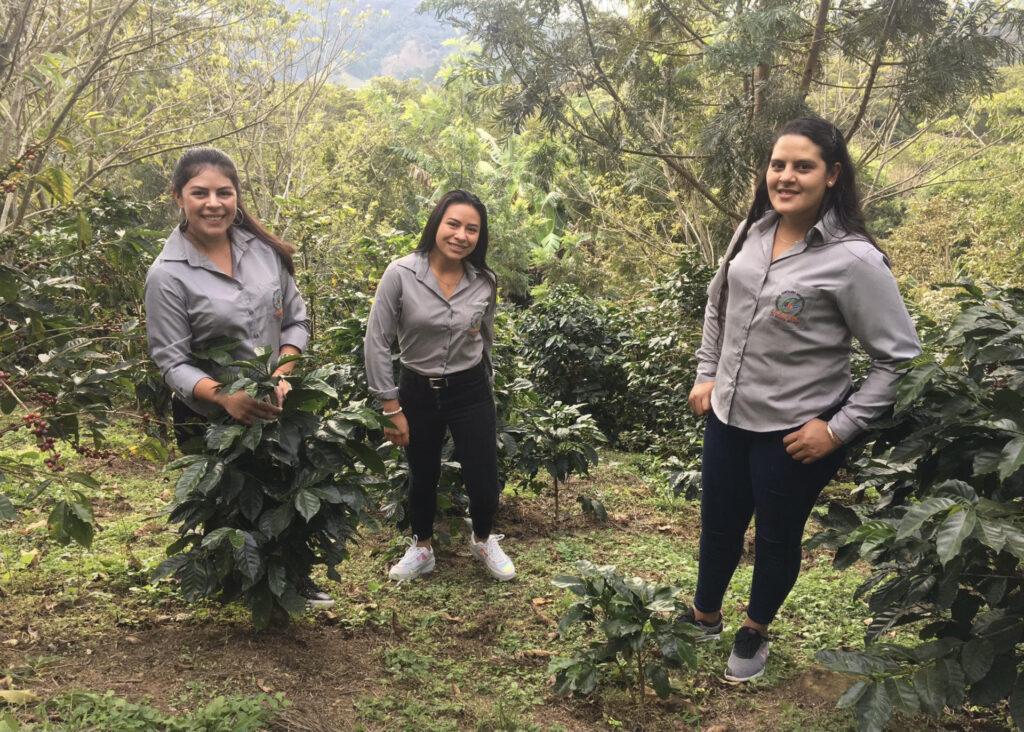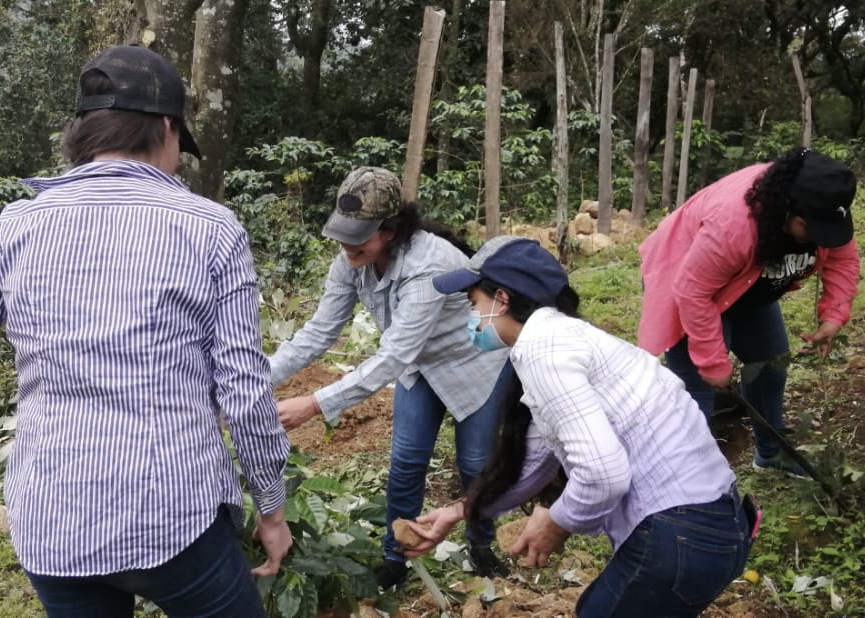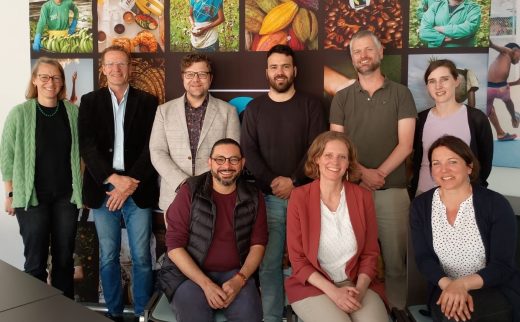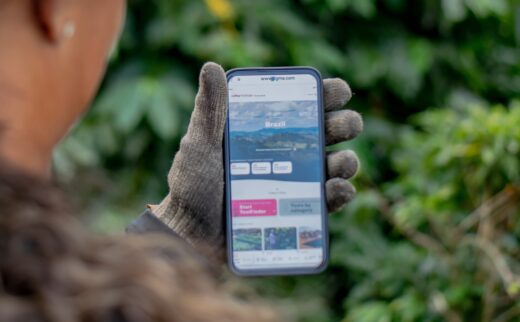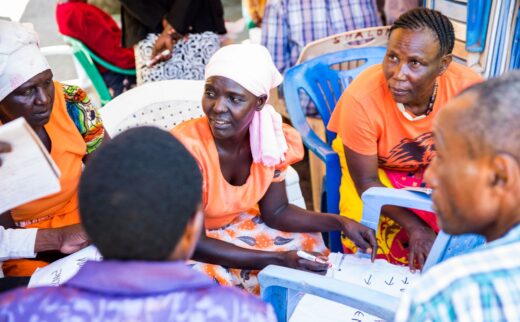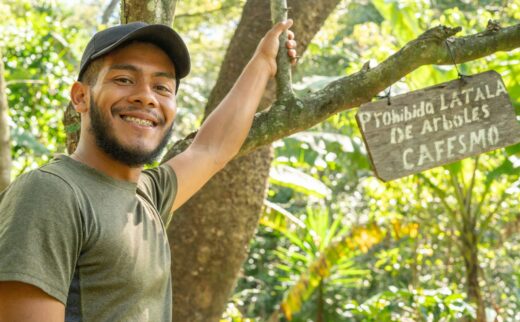Climate Heroes: Glenda Fuentes
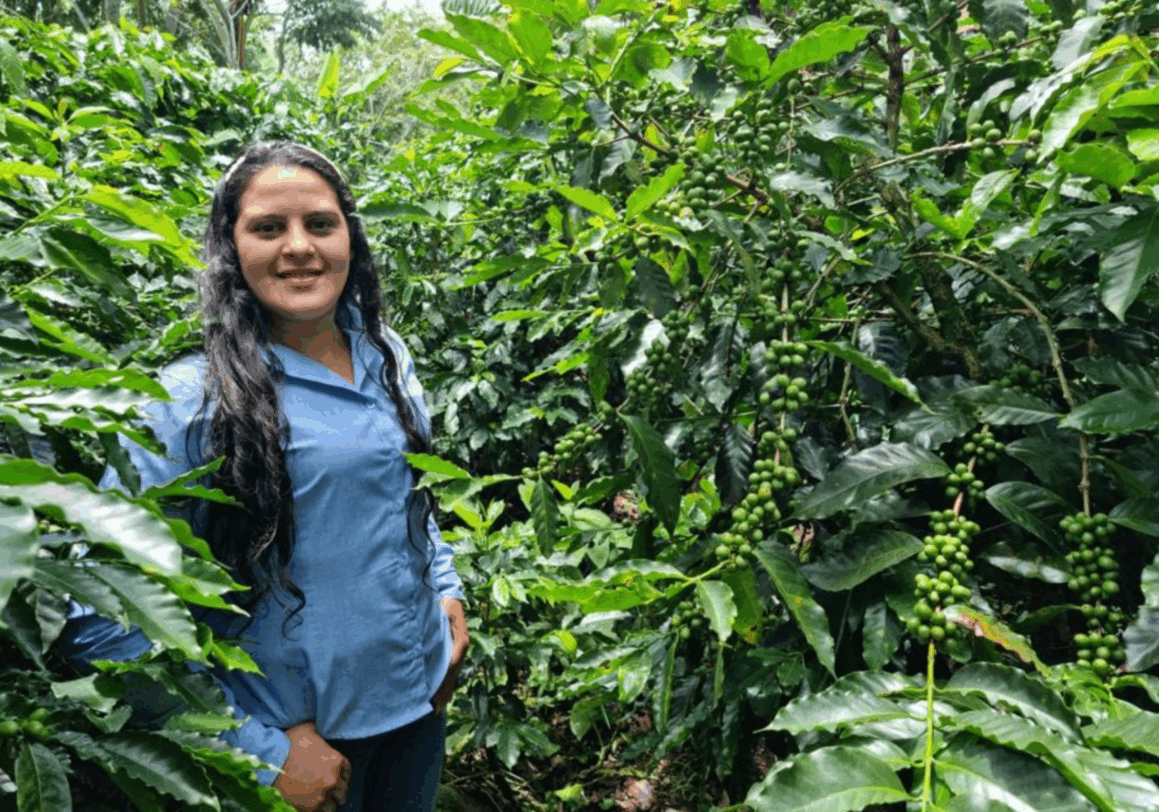
At the age of 7, Glenda Fuentes remembers waking up to the sound of the rooster, stepping out of bed, and neither of her parents being home. She is one of many women in coffee production. They had already left the house at quarter past 5 to pick coffee in the highlands of Ocotepeque, Honduras. After years of hard work and time spent saving money, Glenda’s parents were finally able to buy a piece of land to grow their coffee, which they eventually gave to Glenda to take care of.
Glenda wakes up at 5:00 am every day. Before she starts getting her two young daughters ready for school, she cleans the house, brooms her cement floors, and starts cooking the meals for the day. Not a day goes by without Glenda brewing a fresh pot of her family’s Pacamara coffee. During that time, her husband, Juan Ángel Fuentes, is already showered, and is having a quick breakfast with Mariela and Yanira before taking them to school and heading to the farm.
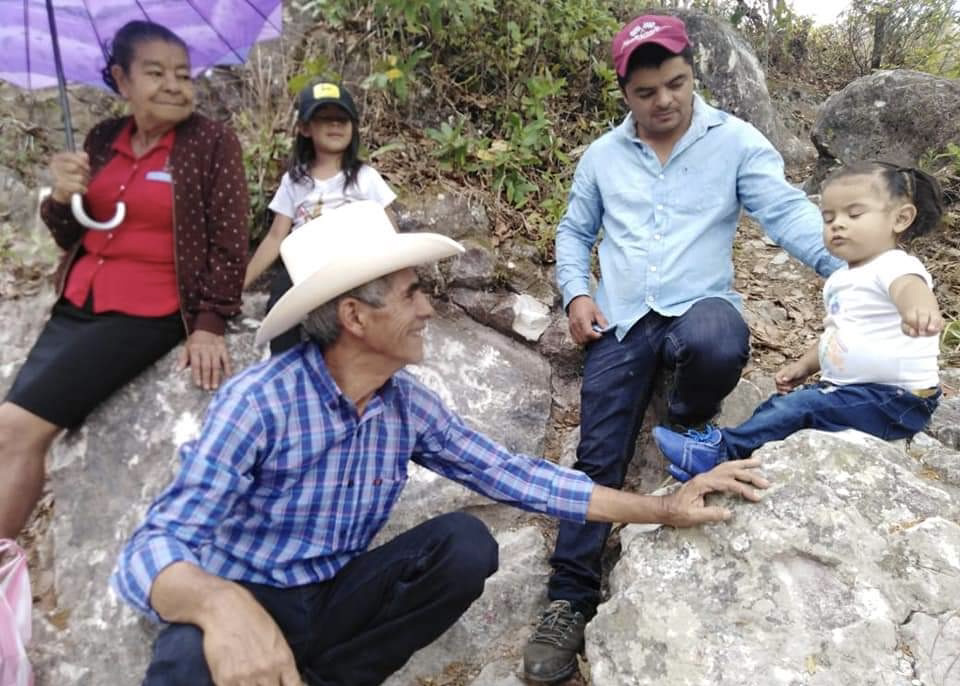
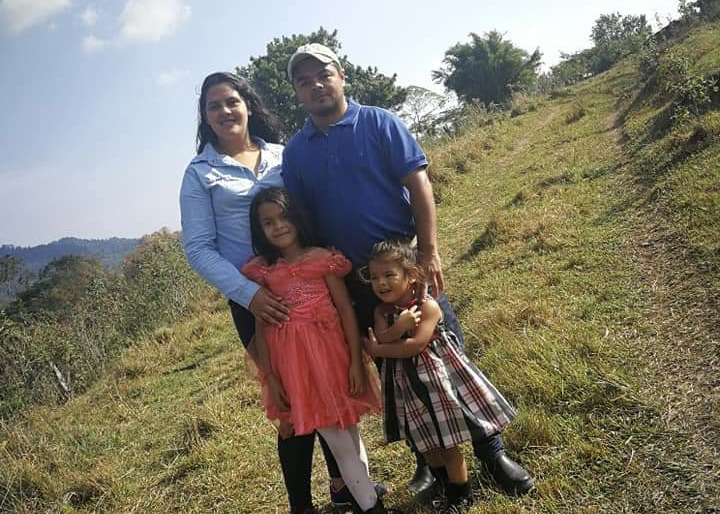
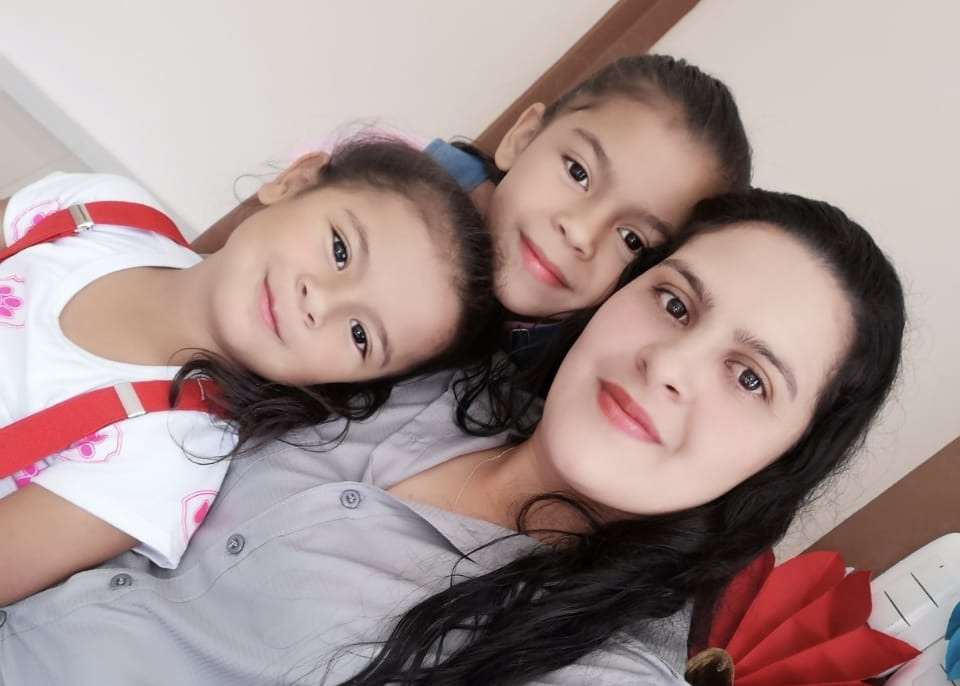
In 2018, Glenda, who was 25 years old at the time, noticed a drastic change in the appearance of her coffee leaves. Together with her husband, Juan Ángel, they detected yellow stains and dark orange spots all around. What appeared to be one of the many diseases they had previously encountered, resulted in much worse. Known as the coffee leaf rust, this highly unknown fungus in the community caused foliage to wither until all their coffee trees resembled a skeleton. That same year, Glenda and Juan Ángel wiped their entire farm clean and started to re-plant coffee trees from zero.
“Apart from the coffee leaf rust, extreme weather events and high production costs were slaughtering our farm”, Glenda recalls with deep sorrow and despair. “Even though I had limited time because of my studies and knew that women were much less involved in the coffee sector than men, I desperately needed to find professional support and get much more involved to support my husband and make our farm strive.”
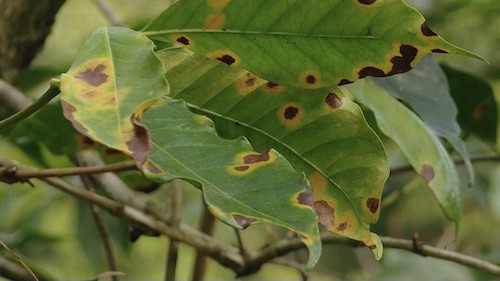
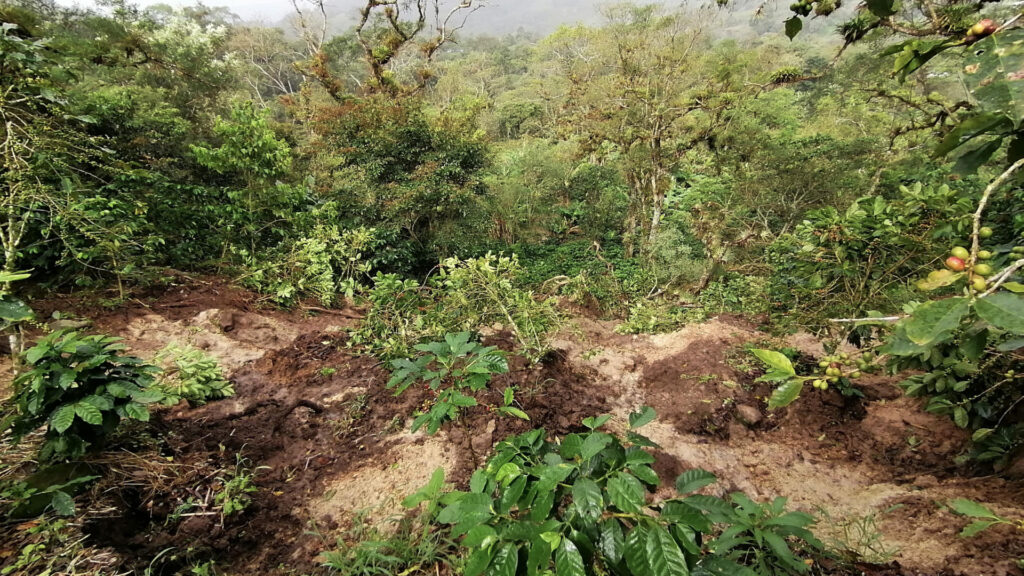
Her upward journey as one of the many women in coffee production began on a bright Thursday morning, during the summer of July 2018, when Glenda jumps on her motorbike, and makes her way through the dusty, unpaved curved roads of Santa Marta, to reach the farmer organization (FO) COCANUPOL. She was approached by the FO’s president, who encouraged her to become a member, join the women’s committee and immediately involve her in climate change adaptation activities, both part of initiative for coffee&climate (c&c). c&c, implemented by Hanns R. Neumann Stiftung (HRNS), is a pre-competitive partnership of leading coffee companies supporting smallholder farming families to become resilient to climate change.
“I’ve been fortunate to participate in different climate adaptation trainings which have helped tremendously”, Glenda expresses. “Aside from implementing different adaptation practices, I’ve learned about farm diversification, participated in workshops promoting the safe use and handling of agrochemicals and learned how to use different measurement tools and technologies in the farm”. c&c has guided Glenda into incorporating several climate-smart agricultural practices into her coffee farm including temporary shade, cover crops, gypsum and crop distancing. In addition, she’s implemented c&c’s 5X1 diversification system which has allowed her to diversify her agricultural production system. 5 rows of coffee are being grown for every row of avocado. “My husband and I have seen significant improvement in our farm over the years. Our yields and productivity have increased, and we’ve been able to strengthen the resilience of our farm so that when new pests and diseases come, our plants are strong, and will not go weak as they did back in 2018”.
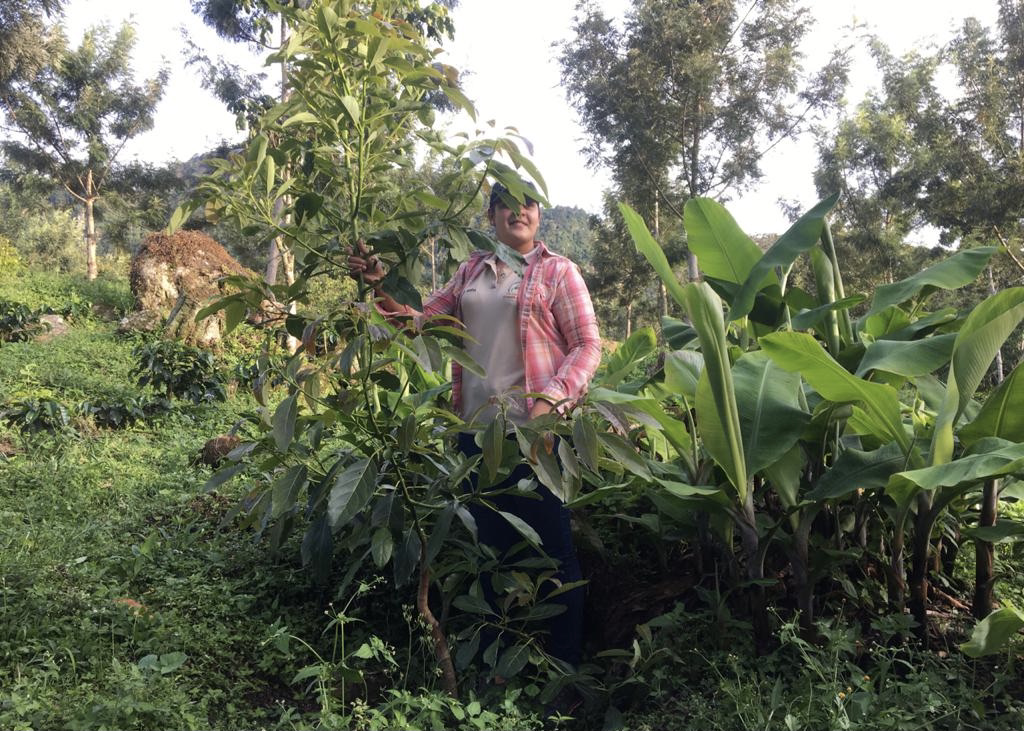
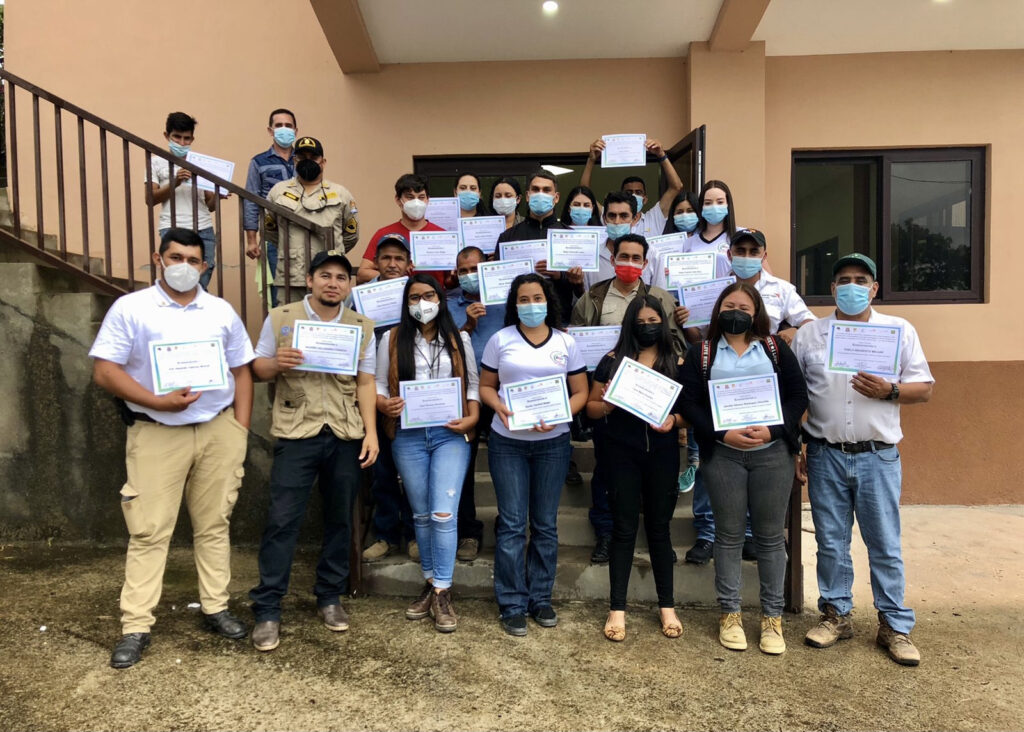
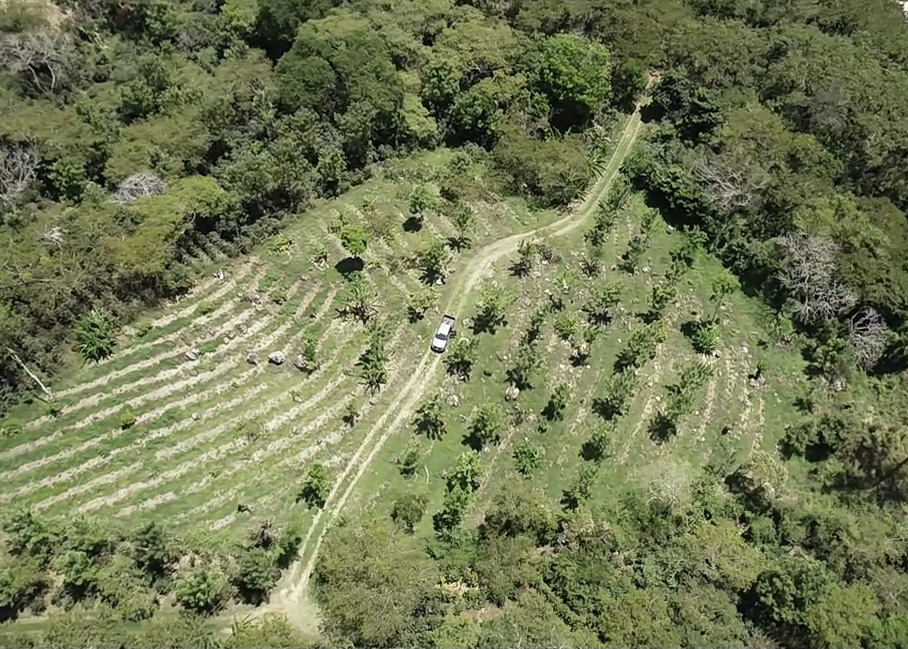
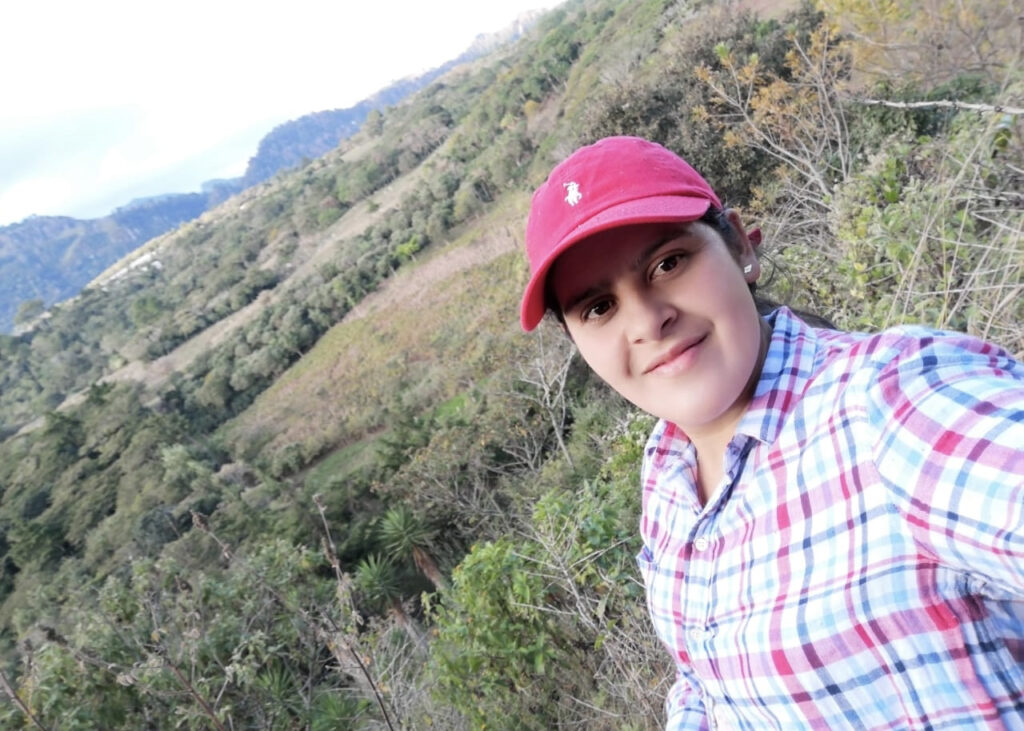
To date, Glenda actively works as a full time Field Technician for her cooperative. Now many women in coffee production are also involved in her cooperative. Her working day usually finishes at 4 pm, although it depends on the time of year. Before heading home, Glenda stops by to support her husband with their coffee farm. She supervises the climate-smart agricultural practices being implemented and evaluates the performance of their coffee plants and avocado trees. During harvest season, Glenda supports with the processing of her family’s specialty coffee. She makes sure the ripe coffee cherries meet the fermentation process she establishes and are dried correctly. Her family’s coffee is currently being processed and commercialized as specialty coffee through the FO.
The knowledge she’s acquired through c&c have allowed her husband and her to transform their farm and be an example of innovative climate adaptation in their community. Together with some of her neighboors, Glenda is also involved in the growing of a group orchard to sell different vegetables in her community. “I strongly believe in the innovative techniques and knowledge c&c provides to smallholders. My hope is to continue being part of c&c so I can continue to learn and become even more resilient to climate change”.
